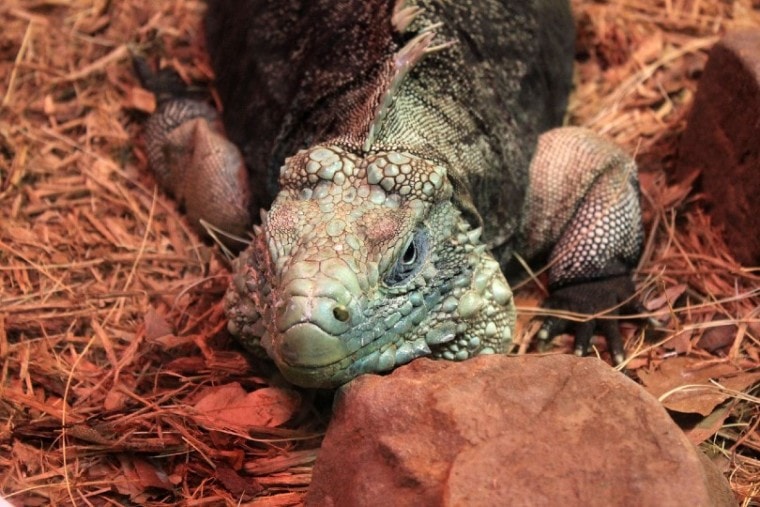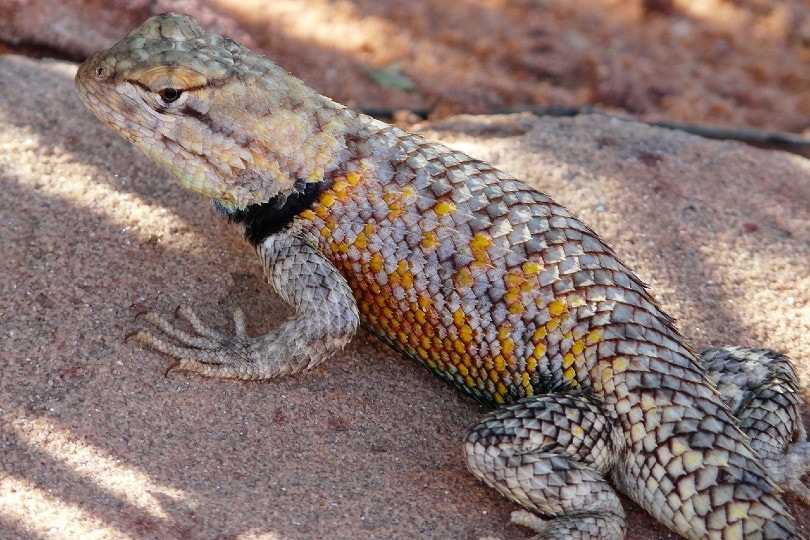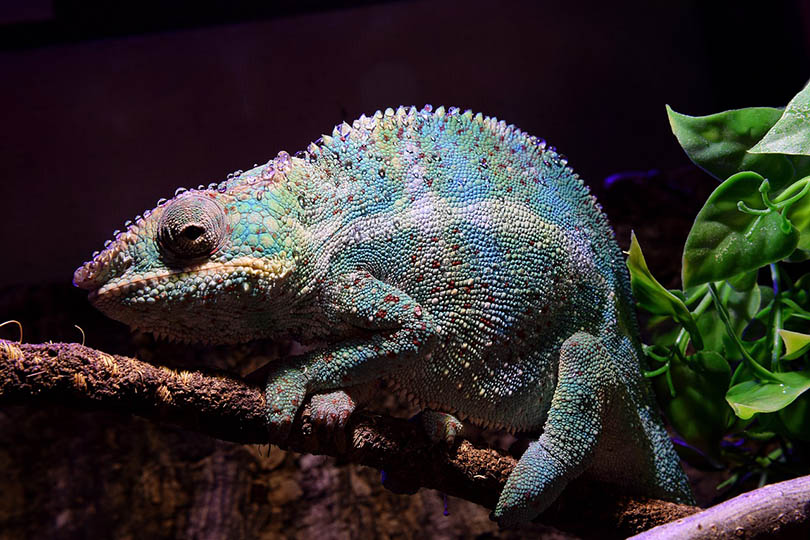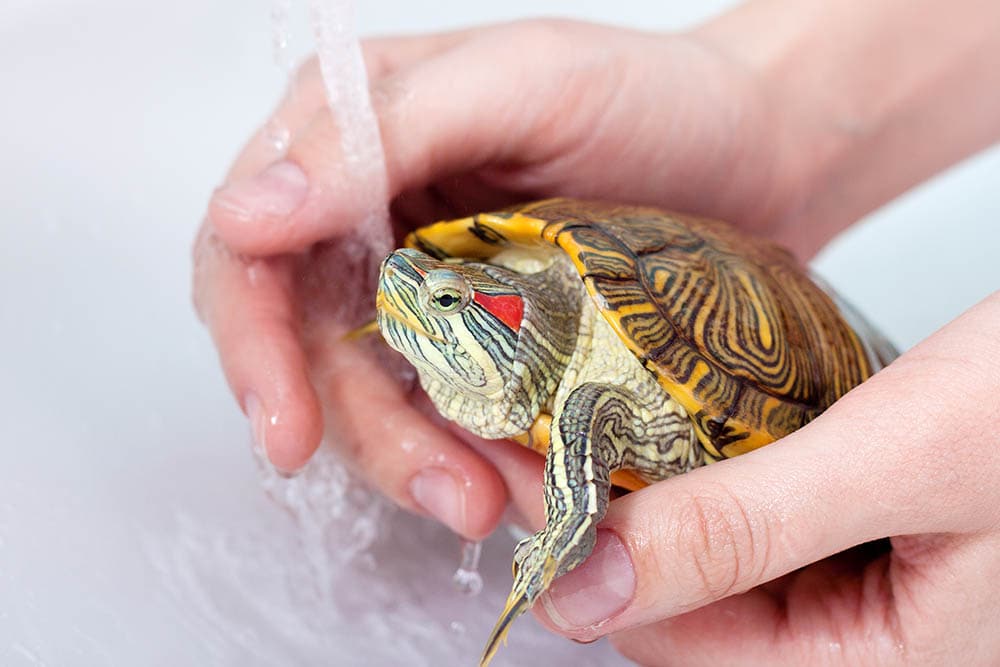
The green iguana is also known as the common iguana. These iguanas are commonly kept as pets. They can reach a length of 5 feet and weigh as much as 17–20 pounds. They are social reptiles, spending time in groups.
Where did these lizards come from? Let’s look at their habitats, where they live, and where they originated. In general, iguanas are native to rainforests of Central and South America.
The Iguana’s Natural Habitat
Iguanas are native to areas with lush rainforests. This range covers southern Mexico to central Brazil, as well as the Dominican Republic, Paraguay, Bolivia, and the Caribbean. They prefer warm temperatures because they are cold-blooded. They can’t regulate their body temperatures, so keeping this lizard as a pet means they will require a heat source in their enclosure. Iguanas are also common in Puerto Rico, but they are considered an invasive species there.
Iguanas spend their days in the trees of the rainforests in their native lands, usually near water. They prefer tropical climates, rarely coming out of the trees except to mate, lay eggs, or change location. They eat insects, fruit, leaves, plants, and flowers and are mainly herbivorous. They are opportunistic, though, and will eat whatever they can find.

Are Iguanas Native to Florida?
Iguanas are common sights in the Sunshine State, but they are not native to it. They likely arrived in Florida as stowaways on ships carrying fruit from South America. They enjoy the tropical climate of Florida and have adapted well to living in this state.
Iguanas are also captured and sold through the pet trade. This has led to an increase in iguanas in the wild, as people frequently release them when they realize how demanding they are to care for.
they are considered to be an invasive species in Florida, and their overpopulation is causing problems for urban areas. Iguanas dig burrows up to 6 feet underground to lay their eggs. They can dig under the foundations of buildings, causing soil erosion, collapse, and other damage.
Iguanas are excellent climbers and can cause damage to roofs. As they are also proficient swimmers, they can crawl through sewer systems and emerge in residential toilets.
Where Do Iguanas Live In the United States?
Iguanas are considered to be invasive in Florida, Texas, and Hawaii. Human intervention is responsible for bringing them to the United States. As more people purchase iguanas as pets and release them into the wild, their populations in these states grow.

Unwanted Pets
If you have an iguana that you can no longer care for, you should not release it into the wild. These reptiles can’t survive in cold weather or fend for themselves in unfamiliar territory. The Florida Fish and Wildlife Conservation Commission (FWC)’s Exotic Pet Amnesty Program will enable you to surrender your exotic pet with no questions asked. These pets can then be adopted by new owners who have been screened and approved to own them.
Discouraging Iguanas on Your Property
If you live in an area with wild iguanas, you may want to discourage them from coming onto your property. Try these methods to avoid iguanas using your home as their favorite hangout:
Summary
Iguanas are native to areas with tropical rainforests. They were introduced to the United States and are commonly kept as pets by reptile enthusiasts. In the wild in the United States, they are considered nuisance animals due to the destruction that they cause by burrowing and eating vegetation.
If you have an iguana that you can no longer care for, releasing it into the wild is strongly discouraged. In many areas, it is also illegal to do. Contact the FWC’s Exotic Pet Amnesty Program for information on how to legally and safely surrender your iguana.
See Also:
Featured Image Credit: Yinan Chen, Pixabay







